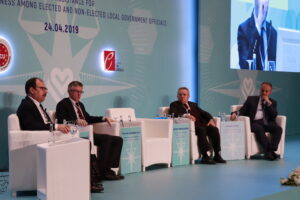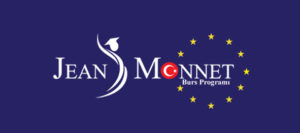
Strengthening the Internal Market
Project is comprised of six components, as follows: Component 1: Improving the strategic, legislative and institutional framework in area of Free Movement of Goods Component 2: Improving the strategic, legislative and institutional framework in area of Free Movement of Services. Component 3: Improving the legislative alignment with the

Increasing Attractiveness, Inclusiveness and Relevance of VET and Adult Education
The overall objective is to improve skill matches of youth and adults in line with labour market needs by increasing access to quality vocational education, training and adult education. The project supports the Ministry of Education and Science of the Republic of Nort Macedonia and related national educational

Technical Assistance for Prevention of Corruption and Promotion of Ethics
Despite the OECD’s assessment that Turkey has made significant progress since 2007 in its efforts to combat corruption, the issue continues to represent an obstacle to economic and social progress and, potentially, to greater integration with the EU. The overall objective of the project was to contribute to

Technical Assistance for Jean Monnet Scholarship Programme
Turkey’s negotiations in pursuit of full membership in the European Union (EU) place significant responsibilities on all sections of Turkish society. This fact means that Turkey needs individuals from all parts of society who can closely follow and contribute to EU-related issues. In this context, the specific purpose

Technical Assistance for Border Enforcement of Intellectual Property Rights (IPR) for Modernization of Turkish Customs Administration VIII
It is essential to modernize customs legislation and practices in line with the EU standards for proper and effective implementation of the Union Customs Code. In this context, the purpose of the project was to improve the administrative capacity of the Turkish Customs Administration, raise awareness and increase

Strengthening Vocational Qualifications Authority (VQA) and National Qualifications System (NQS) in Turkey
It can be claimed that the labour markets are required to ensure the provision of formal and non-formal education and training, to support life-long learning, strengthening the relationship between education and employment, and facilitating harmonization with the European Qualifications Framework (EQF). Within this scope, the project aimed to

